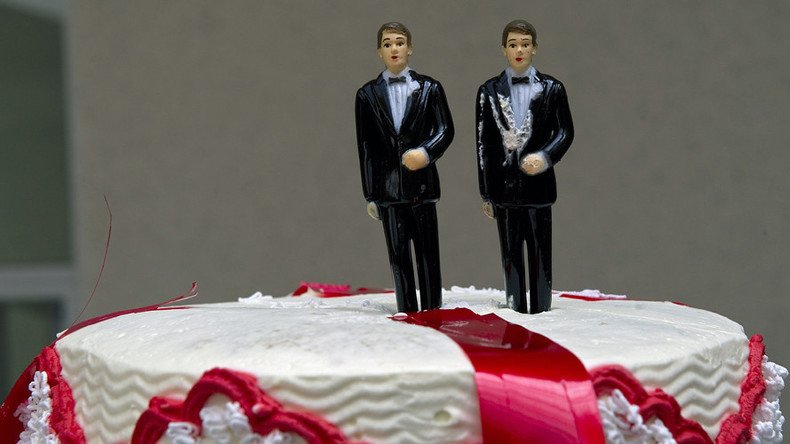US Supreme Court to hear appeal of baker who refused cake to gay couple

After numerous rejections, the US Supreme Court has agreed to hear the appeal of a Colorado “cake artist” who refused to bake a cake for a same-sex wedding and argued that being forced to do so would violate his religious beliefs.
Jack Phillips and his Masterpiece Cakeshop ran afoul of Colorado’s anti-discrimination laws in 2012, when he refused a wedding cake commission for two men on grounds of religious freedom. Charlie Craig and David Mullins sued for discrimination, and the courts agreed with them.
The Supreme Court has declined to hear Phillips’ appeal for years. In the 2015 Obergefell v. Hodges ruling, the justices said that same-sex marriage was a constitutionally guaranteed right in all states. On Monday, however, the court granted Phillips a hearing in its next term, beginning in October.
This has always been about more than a cake. Businesses shouldn't be allowed to violate the law and discriminate. https://t.co/zYwvShNPVU
— ACLU National (@ACLU) June 26, 2017
Craig and Mullins were legally wed in Massachusetts, because Colorado had not legalized same-sax marriage until 2014. However, the state anti-discrimination laws include sexual orientation as a protected category.
Phillips argued that under the First Amendment to the US Constitution, he has free speech and religious rights that would be violated by the state compelling him to make a cake specifically to honor a same-sex marriage.
The court also granted the motion for an amicus curiae brief by the Foundation For Moral Law, an Alabama-based nonprofit that helps legislate religious liberty cases. This allows the Foundation to file a brief before the court even though it is not party to the case.
Two decisions announced on Monday make it difficult to predict what the court’s ultimate decision in Phillips might be. In Pavan v. Smith, the Justices upheld the right of same-sex parents to be listed on their child’s birth certificate, citing the 2015 Obergefell decision to say that states should grant same-sex couples the same “constellation of benefits” opposite-sex couples derive from marriage.
Key passage from Pavan (Arkansas same-sex parents/birth certificates case), in which #SCOTUS reverses the Arkansas Supreme Court. pic.twitter.com/7WAOilKcN8
— Anthony M. Kreis (@AnthonyMKreis) June 26, 2017
In Trinity Lutheran v. Comer, however, seven of the nine Justices sided with a Missouri church that had been denied a state grant for resurfacing a playground with recycled tire material solely because it was a religious institution.
While the consequence of the denial was “in all likelihood, a few extra scraped knees,” Chief Justice John Roberts wrote, “the exclusion of Trinity Lutheran from a public benefit for which it is otherwise qualified, solely because it is a church, is odious to our Constitution all the same, and cannot stand."
Justice Sonia Sotomayor dissented, arguing that the court’s reasoning “weakens this country’s longstanding commitment to a separation of church and state beneficial to both.” Justice Ruth Bader Ginsburg joined in the dissent.












